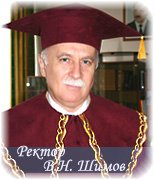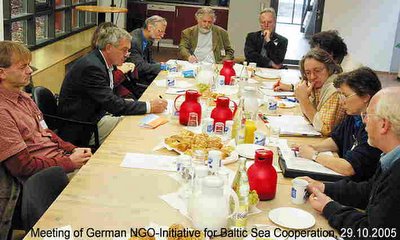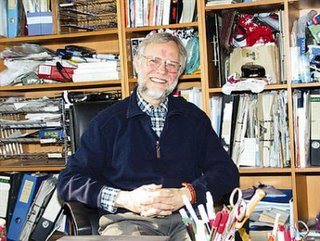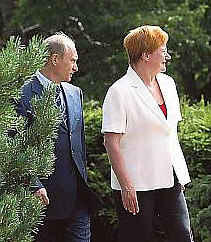The (in English) "Baltic Sea Foundation for Environmental and Regional Development", (in brief: "Baltic Sea Foundation") is an Estonian civic law (registered name: Läänemeere Keskkonna- ja Regionaalarenduse Sihtasutus) body corporate which will shortly be inserted in the Estonian official register of private non-profit organizations (NGOs).
The seven Founders hold, either Estonian, or Swedish or German nationalities. They have different professional and social back-grounds. But, since years, they practice exceptionally good neighbourhood relations in Western Estonia (peninsula of Noarootsi / Nuckö, close to the spa of Haapsalu / Hapsal).
They found together under the roof of the Foundation to demonstrate their firm willingness to undertake joint activities for the benefit of civic society and common interest, not only in Estonia, but Baltic Sea region wide.
Continued below....
ooo
The "Support Circle 'Livonian Common Weal and Economic Society' of 1792" (in brief: Livonian Common Weal) is the German counterpart of the "Baltic Sea Foundation".
The Support Centre, for the time being, is an informal body. But it is intended to transform it, as soon as possible, into a civic association or - even better - into a foundation, incorporated under German civic law.
The denomination "Livonian Common Weal", at one hand, draws the attention on an example of singular dedication which is fully in-line with the aims and objectives of the "Baltic Sea Foundation"; at the other hand, it intends to bring the successor countries of Livonia - Estonia and Latvia - closer to each other via general interest non-profit co-operation.
Cosmopolitanism was a characteristic of the old noble "Livonian Common Weal and Economic Society"; its heritage is honoured by practising this attitude.
Continued below....
ooo
Baltic Sea Foundation
Background
The Foundation approaches its action fields of “Development of Environmental Protection” and “Regional Development” in a complex way, i.e., always having in mind the civic society and social contexts because only a broad view can produce long lasting effects.
This methodology requires close and permanent exchange with the people, taking into account their backgrounds and, additionally, confidential relations with the official authorities and with other common interest institutions, in the country and abroad, as well.
The Founders are convinced that progress is driven, above all, by the engagement of the inhabitants themselves, especially those of the new EU countries, in the shaping of their habitat and its future. They aim at reaching sustainable solutions through general interest activities, with the help of the Foundation or its allies.
The principal promoter of the Foundation and its actual Chairman of the Supervisory Board is Juergen Lewerenz (tel. + fax in Germany – October to May: +49.2642.1532 and in Estonia – June to September: +372.47.41193. Permanent postal address: Am Bach 12, D 53424 Remagen, Germany; additionally, in Estonia during his above mentioned stay there: Mikutalu, EE 91201 Pürksi, Noarootsi; e-mail: lewerenz.juergen@freenet.de).
Over decades, Jürgen Lewerenz has accumulated experience with developing and reform countries (MEE) and with the subject related national and international, private, as well as official, institutions. Only during half of his professional career he fulfilled desk-duties at administration head-quarters. During the other half, he worked in Latin America, in Bangladesh and within and for all three Baltic countries[1]. He also served the EU Commission PHARE and TACIS Programmes.
The remaining Founders live at Noarootsi in Western Estonia, or close to the place. They are: Birgit Eldh from Spithami / Spithamn, Nova commune, with an additional residence on the island of Gotland; the couple Elar and Leili Piir, both from Noarootsi, Valeri Đeripov and Alar Uus, also from Noarotsi, and Liivia Leškin from Haapsalu.
The Foundation has been able to win a General Secretary. He is the new pastor at Noarootsi parish who, besides from his half-time parsonage attends – heroically – the inmates of the not far away Estonian central jail.
It can be anticipated that the Foundation has to contract paid personnel, in a not too far away future. Because of the absence of sufficient revenues from invested financial resources of the Foundation, personnel costs and other expenses will have to be covered from project budgets.
The task ahead is immense and long lasting. Under the given circumstances, collaborators are needed who volunteer, assuming charges and sacrifice.
State programmes will be utilised but subsidies must and will only be complementary resources; they will be employed to reach targets quicker. They must never be a substitute for own efforts and responsibility.
The Estonian Ministries for Environment and for Regional Development (in Estonia, under the roof of the Home Ministry) and the – vast by its space but small by the number of inhabitants – municipality of Noarootsi have contributed valuable advice during the stage of designing the Foundation because the public authorities of the country require reliable, safe, autonomous, civic society based, democratically operating common interest minded executing bodies with whom they can work together for the success of reconstruction and development programmes.
Ahead of giving the Foundation its actual shape, it has been discussed to develop, out of the Noarootsi based local, half-official nature and environment institution (SILMA), a communal foundation with a wider objective, i.e. including “regional development”.
Finally, this transformation could not be reached because of the decision of the Estonian State to re-organise the public nature and environment protection and to separate it from the local authorities; this field will become directly State governed[2], at the end of the current year.
By defining the whole of the Baltic Sea basin as its sphere of activities, the Founders have freed themselves from local narrowness and from too strong influence by communal policy, without giving up the friendly relations with their home municipality and their place of origin.
The Foundation has been registered, only a few weeks after its notarial enactment and, thus, it is now a body incorporate.
Within short, it will be entered in the National Register for Common Interest NGOs (“NGO Register”). This is the entrance door for bidding for the execution of official projects from nature and environment or regional development programmes, or for requesting official support for projects under its own responsibility.
The Foundation will co-operate closely with like-minded national and expatriate personalities and with analogous bodies, especially with such from EU countries.
Consortial relations (with Germany and Sweden) have commenced, long before the Foundation has been enacted.
The communication, within the Foundation and with the external world, inside and outside Estonia, will be preferentially in English.
Projects
The first projects of the Foundation will be closely related to its region of origin. These are, for the moment:
(English language commented) fotos show– to be presented in the Baltic States and in other Eastern or Western countries, as well – on the theme “Nature and Environment (possible sub-theme: ‘Birds’) in Western Estonia and a (to be defined) German reference region”, with special attention to the rich but, nevertheless, also in Estonia endangered natural circles, comparing the Estonian situation with the damage done in the respective German region. Harmful human influence; lessons learnt from mistakes; decided upon consequences and such still in discussion; protective and nature repair measures – all will be shown and described.
Co-operating (preferably: boarding) schools in Estonia (candidate: “Noarootsi Gümnasium” at Pürksi, Noarootsi municipality – due to its close relations with the here traditionally settling ethnic Swedes, usually called the “Swedish Secondary School”) and in Germany (suitable candidates are envisaged but because of un-concluded discussions, it would be premature to name them here) shall participate actively in the preparation of the event, from the start on.
The co-operating schools shall host the presentation. Boarding houses – where they exist - shall be used and, additionally, other suitable places in the neighbourhood of the schools (in Noarootsi: Lyckholm / Saare Manor, which focuses birds protection, and the close-by Lyckholm Museum).
The schools co-operation shall go hand-in-hand with a partnership between their home municipalities. This could partnership could be supported under the EU Commission “Town Twinning Programme”.
To this end, measurable own efforts have to be contributed which, in this case, could be produced (certainly mostly in kind), without major difficulties, or by the students, or their teachers, or the parents, or the municipalities, or other helpers.
On the German side, an experienced nature protection institution of a “Land” has committed itself to donate exposition material, out of its own stock or to procure it from its partners, and to help with specific know-how.
The event shall take place during the summer 2006 vacation period when the facilities of the schools and the boarding houses are available.
The preparatory period is short but sufficient – if all involved get started soon. (If not, the project will have to be postponed.)
Subsequently, the exposition shall “migrate”, not only in the Baltic Sea region but also in the West and beyond the Baltic Sea countries.
It would be desirable to develop, out of this first co-operation, a durable cohesion between the schools, their students, the parents and the teachers.
o
Professional
movie on bird’s life in Western Estonia – one of the most important European migrating birds’ spots – for TV. This project idea originates from the local Noarootsi nature and environment body, SILMA (about SILMA, see above). Actually, with the assistance of like-minded institutions abroad, producers and connections with media institutions are sought. Interested individuals and institutions are welcome.
o
Local (= Western Estonia) conditions adjustment of
techniques for the use of alternative energy resources – envisaged focus: geo-thermal heating -, with the help of qualified professionals, producers and independent institutes. Success promising contacts are under way.
o
Because of the close relation to the operational field “Regional Development”, the Foundation will also act for the rescue and restoration of monuments (and, within this context, for the re-activation of examplary, still to-day valuable, traditions). The project sketched below is actually discussed:
Restoration, in-line with valid rules and regulations for national monuments, of the roof of Riguldi (Swedish: Rickul; German: Rickholtz) Manor in Noarootsi municipality which is covered with - now widely damaged - Rhenanian slate (the manor buiding is actually owned by the City of Tallinn where it runs a summer school for mentally handicaped children), plus the transportation of the slate material - from the (usual) river Rhine shipping port of Andernach (Germany), via the North Sea and the North Sea – Baltic Sea Canal (or through the “Skager Rak” and the “Kattegatt”) and the Baltic Sea - to a port close to the Manor site, with a traditional sailing cargo-boat, formerly owned by Swedish Estonians and now completely re-habilitated by their grand-children and helpers.
o
Financing of services (such as: purchase commissions; health care; official administration and public services matters) for aged, remote living “singles” with poor income (test region: Noarootsi), out of the sale of attractively packed high quality products, on the basis of raw materials coming from home gardens, from forest and fields and processed by the aged themselves, including a mailing service, on “peasant’s markets”, at touristic crossings, during summer time.
o
Development of western (medical and catering) standard health centres (focus: re-habilitation medicine and nursing of handicaped persons), in the neighbourhood of the famous and attractive spa of Haapsalu / Hapsal (tradition: curative mud baths; see –for the history of the spa: http://www.framare.ee/) for Western European patients (model: Haapsalu’s success with social welfare and private Finnish client?le), in partnership with innovative, cost effectiveness and internationally minded Western institutions (rehabilitation and nursing centres, especially their training and logistics branches; insurers; concerned official bodies) – as alternative for hiring personnel from this region for Western service institutions.
In spite of the relatively low salaries in Estonia, returners would be enabled to increase their savings capacity because of the considerably lower local cost of living, compared with the Western high-cost host countries. They would be in a position of benefiting from Western type professional up-grading without being deprived of their personal, institutional and material connexions.
o
Generation of a system of thorough and in-depth audit of common interest or needy target groups oriented institutions which use “other persons’ money”, i.e. public subsidies and/or private donations, coming from internal sources or from abroad or who handle people’s savings.
The proposed system would enhance the much needed trust of supporters and costumers of such institutions and, at the same time, it would help to cleansen the NGO and the self-help world from abuse and incompetence.
This type of audit would be much more intense and far reaching than ordinary commercial audit or State Supervision ever could be. Also the conduct and the performance of leaders and managers would be judged.
The official control organs would be backed by the new system. They could rely on it what would not only ease their work burden; it would fortify the autonomy, the acceptance, the spread and the effectiveness of the audited institutions, for the benefit of the national community, as a whole.
Possible extra costs – compared with conventional controls – would be, by far, exceeded by a safety and acceptance surplus. The audited institutions would not be oppressed; on the contrary, their chances to survive and to grow would increase.
Under such a control regime, community supporting institutions, most probably, would pop up in big numbers, non-profit NGOs and commercial enterprises of this type, as the so-called self-help businesses, i.e. co-operatives, mutual societies or communal businesses, as well.
The failure of the numerous, often very expensive, attempts to re-activate people’s banks, mutual insurance societies and other financial institutions, serving low and middle income groups in the “transition economy” countries, was mainly caused by the absence of safety, caused by unsatisfactory control mechanisms. Therefore, the emerging self-help enterprises did not convince the authorities and the public did not trust them either.
The best way to develop the suggested system quickly would be the voluntary submission of the addressees to it. The proposed mechanism could be managed by associations of which the audited are members; the main role of the State Supervision bodies would be to keep a vigilant eye on the performance of the self-control system, instead of controlling individual “grass-root” institutions.
The best suited and most reliable model would be the so-called association audit, practiced, since long ago and successfully, by co-operatives and savings banks in Germany and in other countries of Continental Europe.
The positive social impacts and the competitivity, for which the financial institutions of these groupings are known, are, above all, based on their effective self-audit mechanisms, a fact which merits to be highlighted.
It would be in vain to request direct involvement of the mentioned groupings but access to their special know-how could be opened via technology facilitation agreements.
For the Eastern Baltic Sea Region inhabitants, the proposed modality is not absolutely new because, until World War II, there were successfully operating cooperative banks, mutual savings, loans and insurance societies, as well as muncipality banks in almost every place which – of course – practised self-audit, in a similar way as described above.
A valuable heritage of business culture of the Baltic Sea Region would be re-born with the application of this control mechanism.
Possible partners for the promotion, the preparation and the introduction of the new modality could be forward looking business auditors in the Eastern Baltic Sea Region and, additionally, the responsible State Supervision authorities and – of course –accountability minded leaders and managers of non-profit and commercial NGOs (the “Baltic Sea Foundation” included).
Co-operating partners could be Western auditors who intend to create a rewarding new field of attractive and competitive activities, beyond their usually practiced range of activities.
o
Complementary contributions and co-operation
The fortune of the Foundation – the main pillar of each institution of this type – is still rather modest because free resources are scarce among the Co-Founders.
Each of them contributed – apart from paying the erection expenses – according to the individual possibilities. The most urgent need was to reach the minimal amount required for the official registration.
It can be foreseen that no major additional endowments will come from the Co-Founders group. Each of the Founders possesses some property but this is entirely required for the subsistence of the family and as protection against risks of life.
Therefore, the Foundation is looking for complementary contributors. Money donations are especially welcome but also real estate may be donated, for instance restituted property in the Baltic countries which is not exploited by the title holders themselves.
Donations may be addressed directly to the “Baltic Sea Foundation” or – which will perhaps be preferred by those living (and paying taxes) in Germany and by citizens of other Western countries, to its German counterpart, the “Livonian Common Weal” (see below).
The Foundation’s intention is to co-operate with like-minded persons and institutions, especially for bidding consortia for the execution of official and private projects and for self-governed undertakings, with or without external support.
Since the Foundation is actually still unable to contract paid personnel und because the Founders have little free time, the call for volunteering collaborators is repeated, at this stage.
ooo
Livonian Common Weal (Society)
The “Support Center ‘Livonian Common Weal and Economic Society’ of 1792 is the Germany based counterpart of the “Baltic Sea Foundation”.
In addition to its support function, the “Livonian Common Weal” may operate in other fields which are compatible with the objectives of the “Baltic Sea Foundation” and the good traditions of its historic patron.
The “Livonian Common Weal”, for the time being, is handled by Juergen Lewerenz alone.
The Support Circle has been startet informally but it shall be transformed – hopefully soon – when additional persons or institutions join and more material and personal resources find together under its roof, into a registered civic society or, even better, into a German civic law foundation.
German income tax deduction possibilities (EStG – Einkommensteuergesetz - and AO - Abgabenordnung) played an important role when conceiving and locating the Circle.
The title “Livonian Common Weal and Economic Society” (its German name: Livländische Gemeinnützige und Ökonomische Societät), founded in 1792 in Riga, was incorporated because it is an intentions close example for the new “Baltic Sea Foundation”.
The Society is an out-standing intellectual monument and a tradition of good practice which merits to be honoured; it is worth-while to re-habilitate it.
The “old” Livonian Common Weal Society, for a century and a half, has been a positive expression of Baltic Sea culture which, since centuries, had many ties with the West, not only with the German speaking world.
The (old) “Livonian Common Weal Society” operated, for the benefit of its home region, until the beginning of World War II.
It held very closely ties with fellow institutions in the neighbouring regions of Livonia, the “Courland Economic Society” of 1836 (in German: Kurlaendische Oekonomische Gesellschaft) and the “Estonian Agricultural Association” of 1839 (in German: Estlaendischer Landwirtschaftlicher Verein).
In 1813, the “Livonian Common Weal” was transferred to Tartu (Dorpat). This domicile was kept until the end of its activities (in 1939).
In the middle of the 19th century the Society was re-named into “Imperial Livonian Common Weal….” to stress its close relations with the Zaristic crown. This name was kept until the separation of the “Baltic Provinces” from Russia, at the end of World War I.
The split of the Livonian territory and the annexion of parts of it to the, at that time, newly created, countries of Estonia or Latvia, respectively, made the undertakings of the “Livonian Common Weal” somewhat more difficult. Its co-operation with Latvia weakened a bit but, nevetheless, it kept its original orientation towards the whole region and its progress.
The activities ended with the destruction of civic culture in the Baltic Region and the isolation imposed by the occupants.
The reconstruction efforts can become effective if the initiator is not left alone. At the end of the presentation he re-iterates his wish to win personal and material support.
[1] Juergen Lewerenz was – in the period 1992-1993 - the first long-term EU adviser for Estonia (Bank of Estonia – Eesti Pank). Apart from his official job, he volunteered, upon request of the President of the Central Bank - anonymously and without honorary or consent of the EU Commission, for the design and the introduction of the new Estonian currency. All this took place, ahead of the return of the country to the international central and commercial banking community. His experience during these harsh and conflictive times was laid down in his (German language) book, titled “Banken im Baltikum. Gestern. Heute. Morgen?” (Banks in the Baltic. Yesterday. To-day. Tomorrow?) Fritz Knapp-Verlag. Frankfurt/M.. 1997. Germany. ISBN 3-7819-0590-X
[2] Noarootsi will be incorporated into one of eight Nature and Environment Districts, each of them with a Regional Office. The Regional Office for Noarootsi will be 50 km away. To maintain, nevertheless, the local ties, it is envisaged to keep a local Liaison Centre at Noarootsi. Projects will no longer be executed directly by the authority but delegated to suitable NGOs, such as the Foundation. It may well be that also such undertakings which started, ahead of the reform, and which are already financed out of State ressources, will be included in this transfer. The foundation would like to apply for such projects, or as commissioned body, or for their execution under its own responsibilty.













